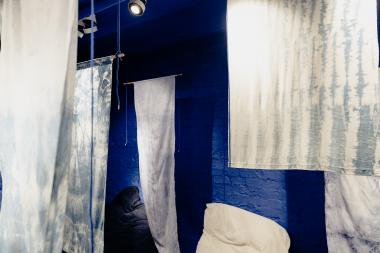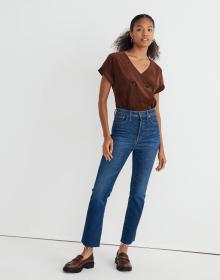C.L.A.S.S.: New project “Fashion schools for design - driven sustainable innovation”
Piattaforma Sistema Formativo Moda Ente del Terzo Settore renews its commitment in the field of responsible, eco-friendly fashion with a new ad hoc initiative for Fashion Graduate Italia: FASHION SCHOOLS FOR DESIGN - DRIVEN SUSTAINABLE INNOVATION. The project has been set up in a partnership and with the support of C.L.A.S.S. (Creativity, Lifestyle And Sustainable Synergy).
The project “Fashion Schools for Design - Driven Sustainable Innovation” is presented at the eighth edition of the event organised by Piattaforma Sistema Formativo Moda, staged from 3 to 5 November at BASE Milano.
Embracing the theme of this edition of Fashion Graduate Italia, “Sustainable Innovation”, Piattaforma Moda has invited students from fashion schools, academies and associated institutes to participate in a training course regarding the planning and creation of an outfit in compliance with a responsible fashion approach: starting with the design, including the choice of sustainable materials supplied by some of the hub’s partner companies, and also involving a look at the communication strategy for the project.
To create their looks, the selected students followed two training courses organised by C.L.A.S.S.: “Introduction to next-generation Fashion” and “Introduction to smart ingredients”. These courses covered the values of next-generation fashion (integrating sustainability with design and innovation) and the characteristics of innovative and sustainable materials to produce the outfits.
The development process of the 11 final looks was followed in person by creative director Olivia Spinelli - Coordination and Creative Direction at IED Moda Milano and member of the Artistic Committee of FGI 2022 - and by tutor Camilla Carrara - founder and zero-waste designer of ZEROBARRACENTO -, the project coordinator of C.L.A.S.S.
The partners of C.L.A.S.S. that contributed by supplying their materials are: Berto, Brunello, Iluna Group, Re.VerSo™ by A. Stelloni Collection by Mapel and Tessitura Grisotto; IED - European Institute of Design and ZEROBARRACENTO also gave support in the implementation of the initiative.
Piattaforma Sistema Formativo Moda Ente del Terzo Settore C.L.A.S.S. Design Sustainability
C.L.A.S.S.






























